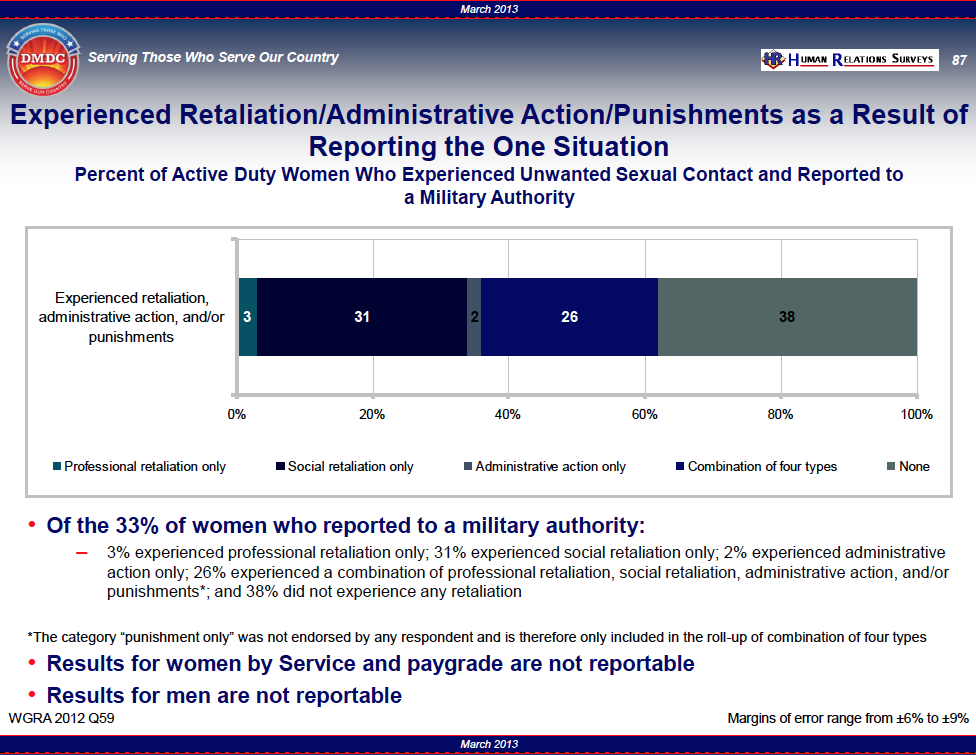Protecting Military Whistleblowers and Victims of Sexual Assault
by Nick Schwellenbach, 6/5/2013

Members of Congress are rightly outraged at the epidemic of sexual assault in the military. No one should have to suffer the trauma of sexual assault – least of all those Americans who have volunteered to serve our country, and whom our military has a duty to keep safe. Sadly, that promise is not being kept. Approximately 26,000 service members were victimized in the past year, according to a recent Defense Department survey. Even worse, of the women service members who suffered sexual assault, nearly 70 percent did not report the crime to a military authority – a majority of which said that they felt uncomfortable making a report. And no wonder why: of the women who did report, more than 60 percent said they suffered retaliation for doing so.
In response, lawmakers have proposed ways to strengthen whistleblower protections for members of the armed services. The legislation comes against a broader backdrop of government and media reports that have found problems with the handling of military whistleblower protection cases and weaknesses in the current state of the law over the last several years.

Source: Department of Defense Annual Report on Sexual Assault in the Military, FY 2012, Volume II
The Center for Effective Government has come out in support of the “Military Whistleblower Protection Enhancement Act” (S.1081) sponsored by Sen. Mark Warner (D-VA) and a similar amendment to the National Defense Authorization Act on the House side being offered by Reps. Jackie Speier (D-CA) and Mike Coffman (R-CO).
According to a letter signed by the Center for Effective Government and other organizations, the legislation would ensure that:
- More disclosures of wrongdoing are protected – including those made during one’s normal job duties, in the chain of command, or regarding sexual assault and other misconduct.
- Service members have the same shot at proving they have suffered retribution as other federal employees and private sector whistleblowers.
- People who suffer retaliation for reporting a problem have a reasonable opportunity to file a complaint (the bill extends the current 60-day statute of limitations to one year).
- A more credible review process is put into place to streamline requests for hearings before the Board for the Correction of Military Records to correct the service record of those who suffer retaliation (currently only 19 percent take efforts to correct their records).
- An Inspector General must take action to make a determination of retaliation, and if substantiated, the military must provide corrective relief to service members who suffered retaliation and discipline those who retaliated.
“Service members should not be victimized in the first place, but when it does occur, there should be a culture in place that supports speaking-out. Unfortunately, that culture does not exist today,” Warner said in a statement. “Improving the military’s whistleblower system is just one part of the solution, but it will be an important step forward in stopping the epidemic of violence against women and men who serve in the U.S. military.”
We agree with Sen. Warner. If the military does not take steps to encourage victims to come forward, the culture of impunity for sexual assault will continue. Crime victims and those who blow the whistle on wrongdoing should be protected – not further victimized by suffering retaliation.
Gavin Baker contributed to this post.




